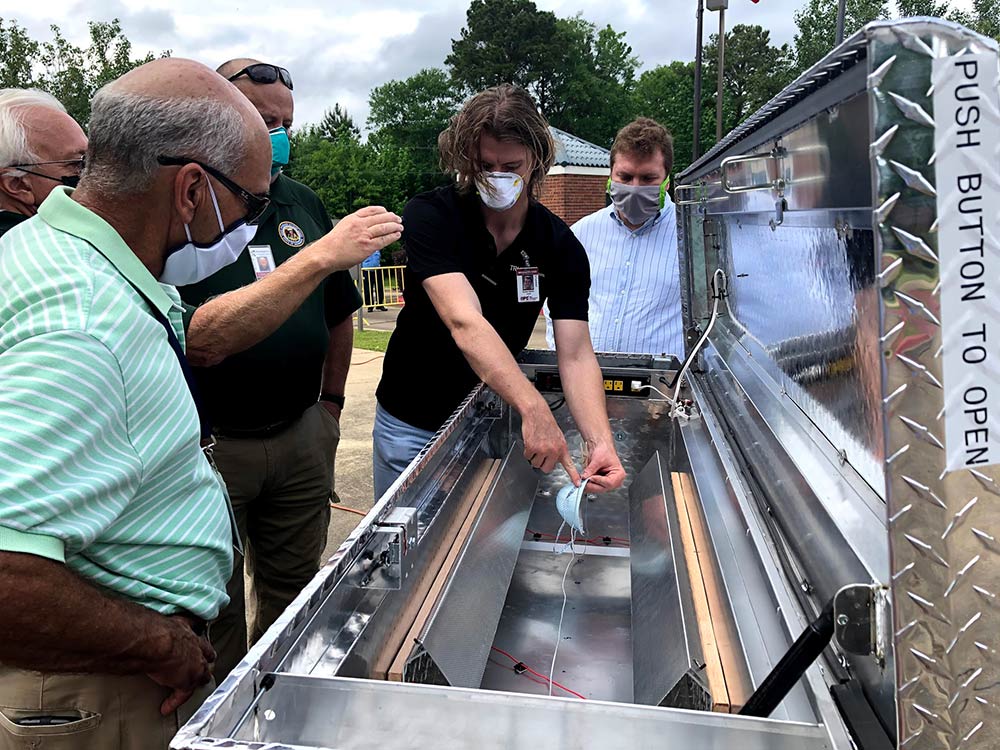Mississippi State donates mask disinfectant to Kosciusko veterans home

KOSCIUSKO, Miss.—The Center for Advanced Vehicular Systems (CAVS), part of the Mississippi State University’s James Worth Bagley College of Engineering, designed and donated a sterilizer to the Mississippi State Veterans Home in Kosciusko, to help mitigate the spread of COVID-19.
Researchers at Mississippi State University and MSU engineering students created the sterilizer to disinfect personal protective equipment. The sterilizer is a modified truck toolbox that can sterilize up to seven masks in 30 minutes.
The partnership with MSVA came when Executive Director Stacey Pickering heard about the device in one of Gov. Tate Reeves’s daily press conferences. He immediately sent a team to Mississippi State to gather information about the device.
“By the time we made contact with MSU and the CAVS staff, we had our first cases of COVID-19 at the MSVA Veterans Home in Kosciusko. The generosity and quick response of the Bulldog family has allowed our staff to continue caring for our Veterans,” Pickering said.
After hearing about the positive cases of COVID-19 at the Kosciusko home, the CAVS team chose to donate one of the devices to the home.
Wilburn Whittington, assistant professor of mechanical engineering at MSU, said the team researched the idea from Nebraska Medicine to use ultraviolet light to decontaminate the extremely valuable N-95 masks. He credited his students with coming up with the practical idea of using a truck toolbox.
“It has the aluminum reflectivity that you want, they outfitted it with the lights, safety features and did the dosage experiments to validate the performance,” Whittington said.
“From the time we heard about the need to the time of the first prototype was six days,” Whittington concluded.
Whittington said that the teams of MSVA and CAVS representatives are currently working on an operations manual for future prototypes that came from this partnership. MSVA is currently building other prototypes for the other three homes in Oxford, Jackson and Collins.